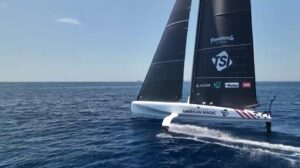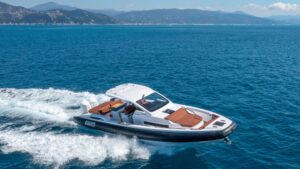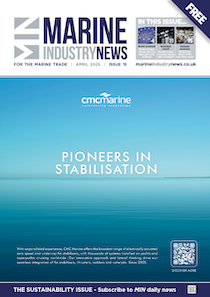Ocean Cleanup plastic pollution ‘sweeper’ deployed in Bangkok
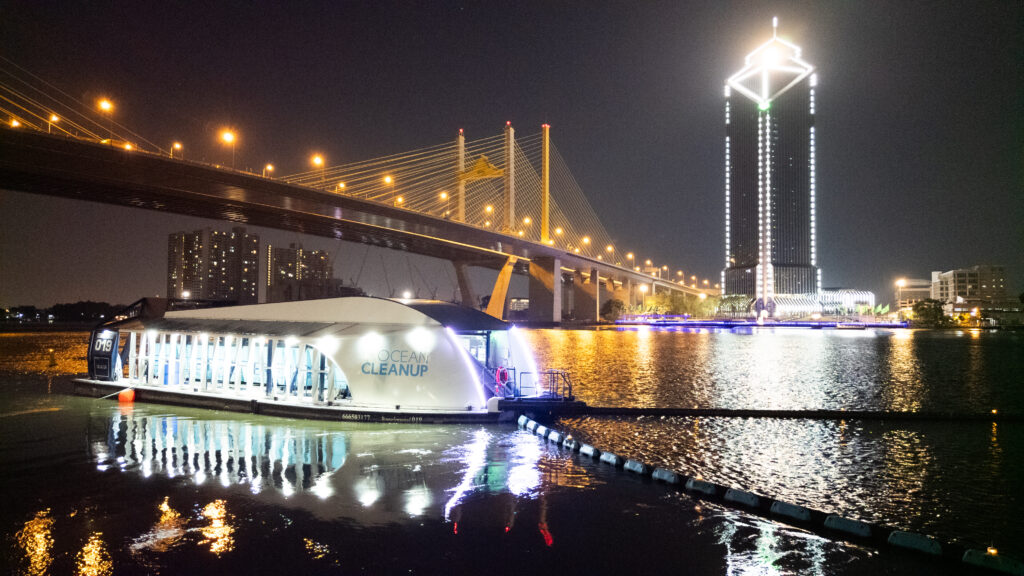
The Ocean Cleanup has deployed its first Interceptor river cleanup solution in the Chao Phraya River, Bangkok – part of a wider partnership to tackle plastic pollution leaking from one the world’s busiest working rivers.
Ocean Cleanup is a non-profit that has spearheaded technology that can essentially sweep oceans and waterways, picking up strewn rubbish and extracting it from the marine environment.
Together with partners The Ministry of Natural Resources and Environment, the Department of Marine and Coastal Resources, Bangkok Metropolitan Administration, The Coca-Cola Company, the Embassy of the Netherlands in Bangkok, Ecomarine, Asimar, and Chulalongkorn University, the project will see Interceptor 019 extract trash while helping the organisation learn more about plastic pollution in Bangkok’s rivers and canals.
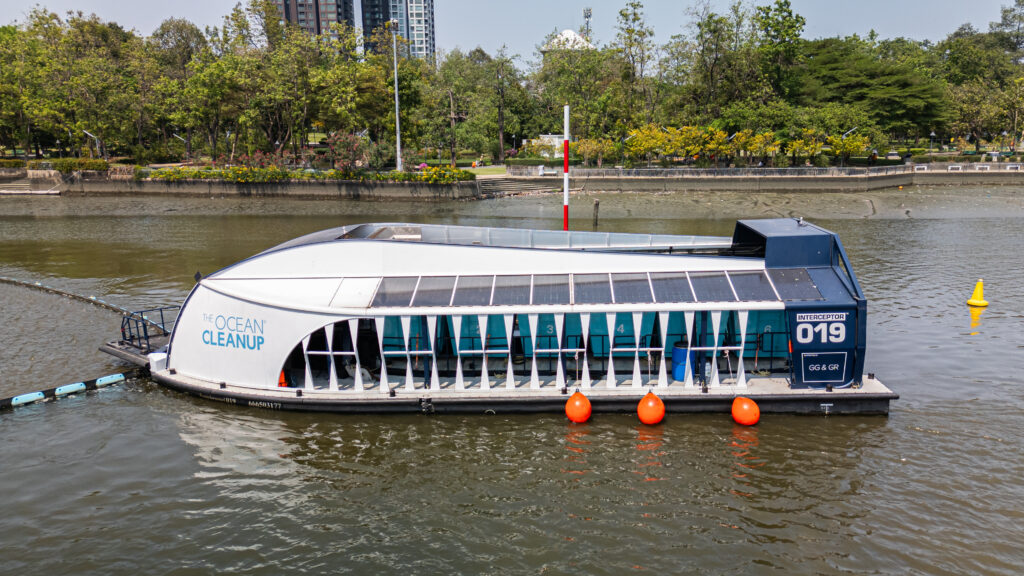
Interceptor 019 is part of The Ocean Cleanup’s long-term partnership with The Coca-Cola Company, which began in 2021 and aims to support the deployment of innovative technologies to help prevent plastic from entering the world’s oceans from rivers.
The Chao Phraya is a vital waterway that serves as the lifeblood of the city. As one of Asia’s major rivers, it is a source of livelihood for many local communities and is indispensable to Bangkok’s 11 million inhabitants.
Interceptor 019 is deployed within a key 16km stretch of the Chao Phraya where 61 canals flow into the river, often transporting plastic trash with them. Studies of the trash collected by Interceptor 019 will help the partners understand the composition of plastic floating in the river, with a focus on learning how to intercept trash before it reaches the last 50km of the Chao Phraya, where it enters the Gulf of Thailand and is emitted into the ocean.
Interceptor 019 is a solar powered, river cleanup solution, and is The Ocean Cleanup’s 5th Interceptor across southeast Asia, joining deployments in Malaysia, Vietnam, and two deployments in Indonesia. Other Interceptors have been deployed under this partnership in Dominican Republic and L.A.
Patcharawat Wongsuwan, deputy prime minister and minister of Natural Resources and Environment, says: “The ministry’s ultimate vision is to restore and preserve the environment by incorporating natural resources and environmental concerns into the Government’s national agenda, as they form the foundation for social and economic development. The partnership to install the Interceptor 019 in the Chao Phraya River will undoubtedly bolster our proactive approach to managing natural resources, protecting the environment, and preserving biological diversity. It will be particularly crucial in addressing Thailand’s complex challenges stemming from plastic waste.”
“We are delighted to support The Ocean Cleanup and all partners in the collection and sorting of trash and plastic bottles retrieved from the Interceptor 019 on the Chao Phraya River. Our aim is to effectively manage all kinds of waste flowing into Bangkok’s busiest river. By reintegrating these valuable plastics into the cycle and segregating other wastes, it thereby helps reduce the need for virgin plastic and mitigating the flow of waste into the ocean,” says Chadchart Sittipunt, Bangkok governor.
Boyan Slat, founder and CEO of The Ocean Cleanup, says: “Interceptor 019 marks a significant milestone in closing the tap on plastic pollution entering the oceans from Bangkok. This deployment is only the first but an important step, alongside the Bangkok authorities and our other partners, in cleaning up the Chao Phraya. The lessons we learn here about eliminating ocean plastic emissions from major cities will be invaluable for other Interceptor projects around the world as we scale up our rivers programme.’’
Victor Wong, vice president and general manager of Coca-Cola Thailand, Myanmar, and Laos, expressed enthusiasm about the collaborative efforts with The Ocean Cleanup: “The insights gained from our collaboration in Bangkok will help to inform the roll-out of this technology in countries around the world and we’re happy to be providing our support to this initiative as we test and learn.”
- The ministry of Natural Resources and Environment, the Department of Marine and Coastal Resources, and Chulalongkorn University will be involved in studying the types of plastic waste leaked into waterways to aid in planning solutions to mitigate plastic waste pollution in Thailand’s major rivers.
- The Netherlands embassy in Bangkok is involved in coordinating international efforts, as the home country of The Ocean Cleanup, to reduce plastic waste entering rivers and oceans.
- The Bangkok Metropolitan Administration is responsible for waste collection and separation of waste obtained from the Interceptor 019 to bring waste into the recycling process and non-recyclable waste to proper disposal.
- Ecomarine and Asimar are responsible for ensuring the highest efficiency in installation and operation of the Interceptor 019.
- Coca-Cola provides on the ground support including driving awareness of The Ocean Cleanups mission and advocating locally. As part of the global partnership, interceptors have been deployed in Vietnam, Guatemala, Malaysia and the United States. As part of its World Without Waste vision, The Coca-Cola Company is working to ensure that all of the material it uses in its packaging is collected and recycled, so that none of it ends up as waste. The Company has a global goal to help collect and recycle every bottle and can it sells by 2030.
The Ocean Cleanup is an international non-profit organisation that develops and scales technologies to rid the world’s oceans of plastic.


